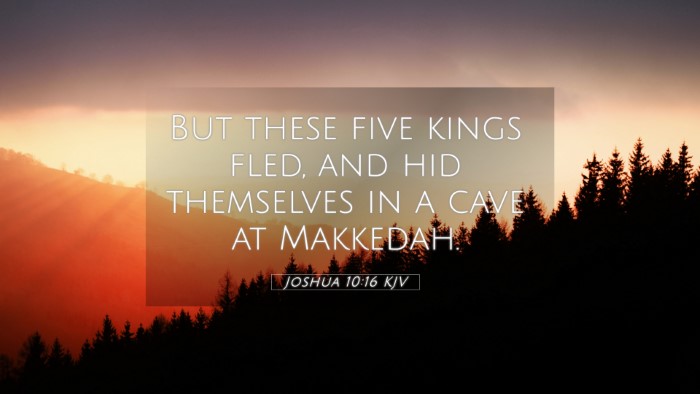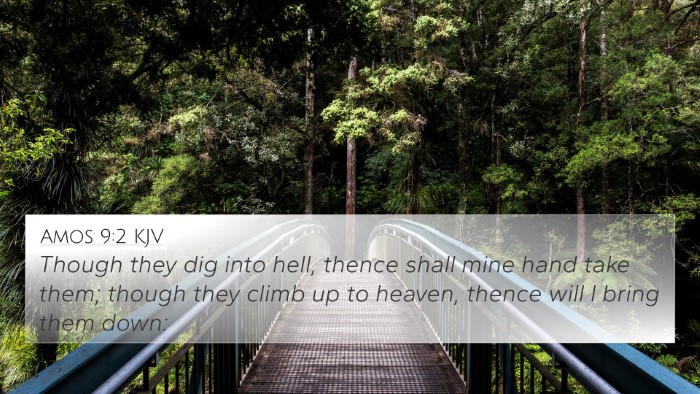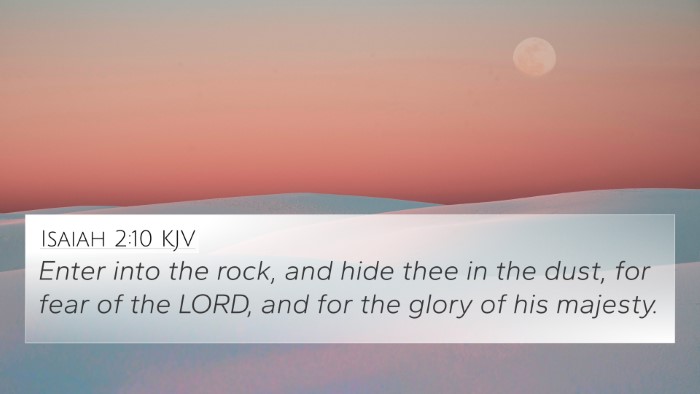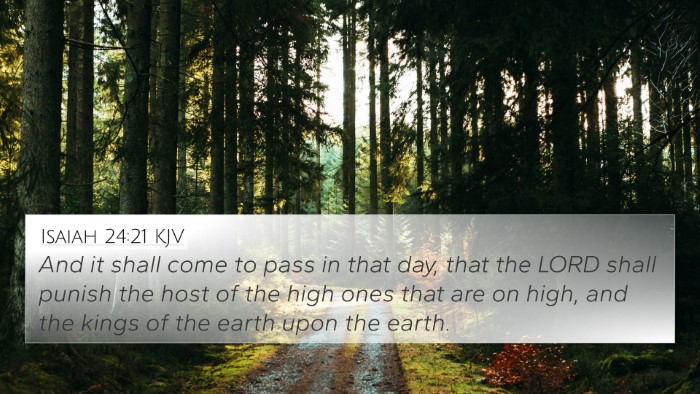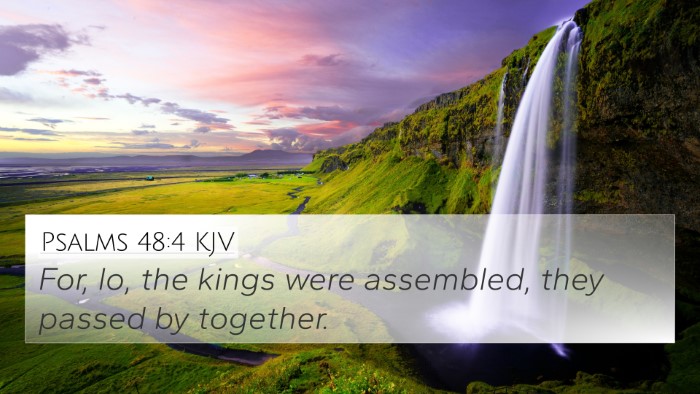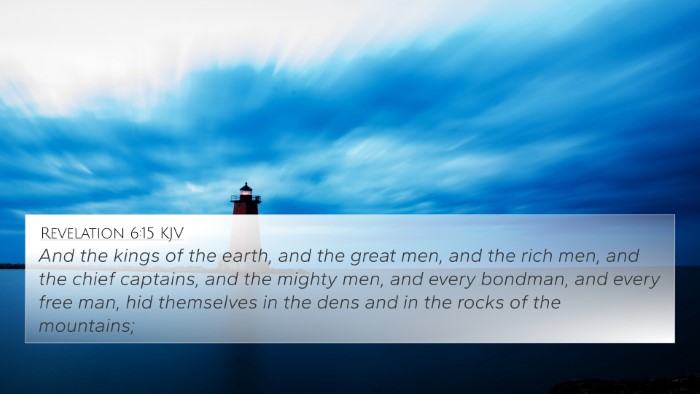Understanding Joshua 10:16
The verse Joshua 10:16 states: "But these five kings fled and hid themselves in a cave at Makkedah." This verse captures an intriguing moment in the narrative, highlighting the aftermath of a significant battle during the conquest of Canaan.
Verse Overview
This verse briefly depicts the fate of the five kings from the Amorite coalition who sought refuge after their defeat. Their attempt to hide emphasizes the futility of resisting God's chosen representatives and signifies the divine empowerment bestowed upon Joshua and the Israelites.
Commentary Insights
Matthew Henry's Commentary
Matthew Henry notes that the act of hiding represents the despair of the defeated. The significance of this event underlines God's sovereignty in warfare and His ability to deliver His people when they follow His commands. Henry also points out that their hiding is a metaphor for those who attempt to avoid judgment.
Albert Barnes' Commentary
Albert Barnes elaborates that the cave serves as a symbolic representation of despair and defeat. He emphasizes that their flight indicates God's intervention in battle, as the kings thought they could elude the consequences of their actions. Barnes also highlights the strategic importance of capturing these kings as part of God’s broader plan for Israel.
Adam Clarke's Commentary
Adam Clarke discusses the implications of the kings hiding themselves. He suggests that their fear and subsequent hiding illustrate the turning point in the conflict, where they realize that the power of the Israelites is backed by God. Clarke mentions that this event serves to bolster Israel's faith and encourage them in their conquests.
Thematic Connections
Joshua 10:16 can be connected to several other biblical texts that deal with themes of defeat, divine power, and the futility of opposing God’s will. Here are some significant cross-references:
- 1 Samuel 14:47: Discusses Saul's conquests against the enemies of Israel, reflecting God's sovereignty.
- 2 Kings 6:15-17: Showcases God's protection over His people when they feel besieged.
- Isaiah 54:17: Promises that no weapon formed against the faithful will prosper.
- Romans 8:31: Affirms that if God is for us, who can be against us?
- Ephesians 6:12: Reveals that we wrestle not against flesh and blood, but against spiritual forces.
- Revelation 19:19: Describes the ultimate defeat of earthly rulers against God’s authority.
- Mark 3:27: Jesus speaks about binding the strong man, illustrating His authority over enemies.
Application and Reflection
The verse and its interpretations encourage believers to recognize God’s power in their lives. It serves as a reminder that no matter how dire a situation may appear, surrendering to God's will leads to victory.
Tools for Bible Cross-Referencing
To deepen your understanding of the connections within scripture, a number of resources can assist:
- Bible Concordance: A list of words and verses that helps locate passages.
- Bible Cross-Reference Guide: Offers thematic connections between different scriptures.
- Cross-Reference Bible Study: Methodologies that deepen the analysis of scriptures.
- Bible Chain References: Systems that link verses together based on themes or concepts.
- Comprehensive Bible Cross-Reference Materials: Collections of resources for extensive studies.
Conclusion
Joshua 10:16 reflects profound truths about spiritual warfare and the ultimate authority of God. By utilizing scripture cross-referencing, believers can gain a more comprehensive understanding of their faith, drawing connections that reveal the interconnectedness of God’s message throughout the Bible. Understanding such verses not only enhances study but also encourages deeper reflections on our spiritual journey.

